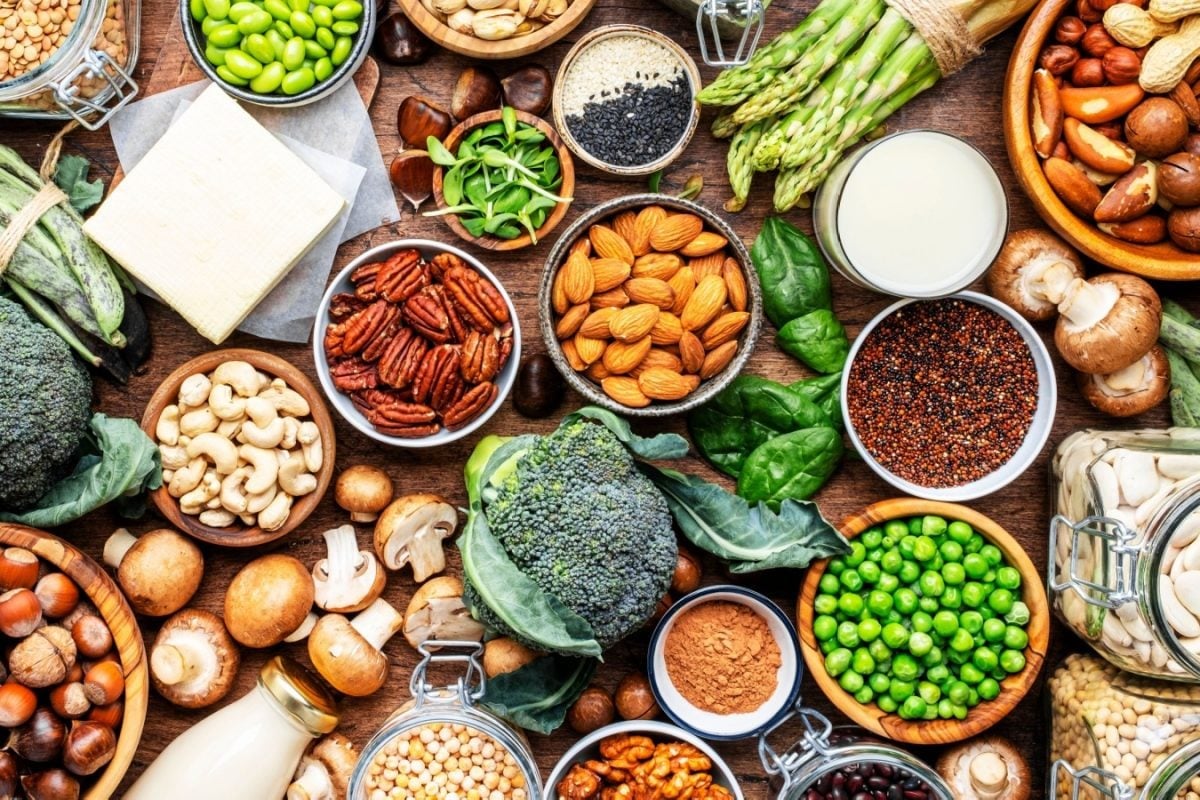

A health Professional Recommends The Top Plant-Based protein Sources For A Daily Eating Regimen.
According to a report, india has the highest number of vegetarians. Slowly, a number of people are adopting both vegetarian and vegan diets due to several reasons.
One not unusual difficulty among those making this shift is ensuring good enough protein intake. However, vegetarians have a wealth of protein-rich alternatives to select from, including almonds, lentils, chickpeas, soy products like tofu, and whole grains like quinoa. Ritika Samaddar, Regional Head of Dietetics, Max Healthcare, New Delhi, shares all plant-based protein sources for daily consumption:
Protein needs vary based on factors which include body weight, metabolism, and life stages. For most indian adults, the recommended protein consumption ranges between 0.8 to 1 gram per kilogram of body weight. Unfortunately, many families remain unaware of the crucial role protein plays in maintaining overall health. Understanding these requirements and incorporating protein-rich foods into the diet is essential for optimal well-being.
If you are thinking about switching to a vegetarian or vegan weight loss program, here are a few outstanding plant-based protein resources to ensure your daily nutritional needs:
Almonds
Almonds are a great source of plant-based protein, imparting 6.3 grams per 30g serving. Packed with 15 essential nutrients, including healthy fats, fiber, vitamin E, vitamin B2, magnesium, and antioxidants, they help with muscle repair, heart health, and sustained energy levels. Rather than relying on dietary supplements or quick fixes, making almonds a daily habit can significantly improve overall nutrition.
Almonds are versatile to incorporate into food; enjoy them as a snack, mix them into smoothies, sprinkle them over salads, or lightly roast them for added crunch.
Millets (Pearl Millet & Little Millet)
Used as a rice replacement in dishes like upma, dosa, idli, and khichdi, millets are gluten-free and rich in vitamins A and B, phosphorus, potassium, niacin, and iron. millets also aid digestion, helping to prevent bloating, constipation, and cramping.
- 100g of pearl millet offers 10.9g of protein.
- 100g of little millet offers 10.1g of protein.
Other millet varieties, such as foxtail millet and sorghum (jowar), are terrific sources of antioxidants and contribute to bone health.
Lentils (Dals)
Lentils are often neglected, no matter their outstanding nutritional profile. They're filled with potassium, zinc, magnesium, B vitamins, and iron—a crucial mineral often lacking in vegetarian diets.
- 100g of lentils offers about 23g of protein.
From sambar and dal tadka to pongal and khichdi, lentils are a fundamental part of indian cuisine, providing a delicious and nutritious way to satisfy daily protein needs.
Debunking protein MythsProtein is an essential nutrient that plays a crucial role in countless functions within the body. Despite its importance, there are many myths and misconceptions about protein. This article will debunk some of the most common protein myths. Myth: You can only get enough protein from meat and animal products. Fact: While meat and animal products are high in protein, there are plenty of plant-based sources of protein, such as beans, lentils, tofu, and quinoa. A well-rounded diet that includes a variety of these foods can provide all the protein your body needs. Myth: Eating a lot of protein will make you bulky. Fact: protein is essential for muscle growth and repair, but eating excessive amounts will not automatically lead to a bulky physique. Building muscle requires a combination of protein, exercise, and overall caloric intake. Myth: protein supplements are necessary for building muscle. Fact: While protein supplements can be convenient, they are not essential for building muscle. Most people can meet their protein needs through whole foods, and supplements should not be relied upon as a primary protein source. Myth: You need a lot of protein right after a workout. Fact: While it is beneficial to consume protein after a workout to support muscle repair, the idea that you need to consume it within a specific
Contrary to commonplace misconceptions, vegetarians can easily meet their protein requirements with a various weight loss program. additionally:
● excessive-protein diets do now not purpose weight advantage-effective weight management depends on ordinary caloric consumption, not simply macronutrient stability.
Plant proteins are fairly digestible; many are beneficial for gut health and average digestion.
The idea that vegetarians lack protein is a fantasy. by making conscious nutritional picks, one can meet and even exceed protein necessities with plant-primarily based meals. simple, day by day additions-like a handful of almonds-can cross an extended manner in preserving health, power, and normal nicely-being.
Disclaimer: This material is not meant to replace expert medical advice; rather, it is meant to be informative only. If you have any queries concerning a medical problem, you should always see your doctor.




 click and follow Indiaherald WhatsApp channel
click and follow Indiaherald WhatsApp channel